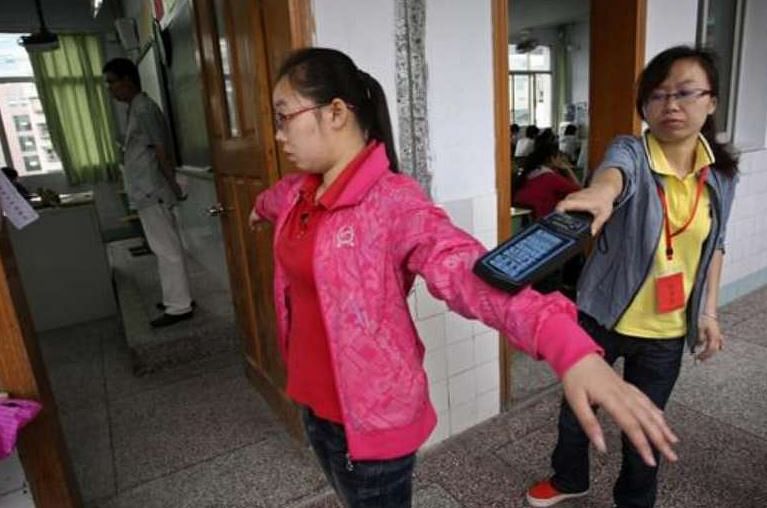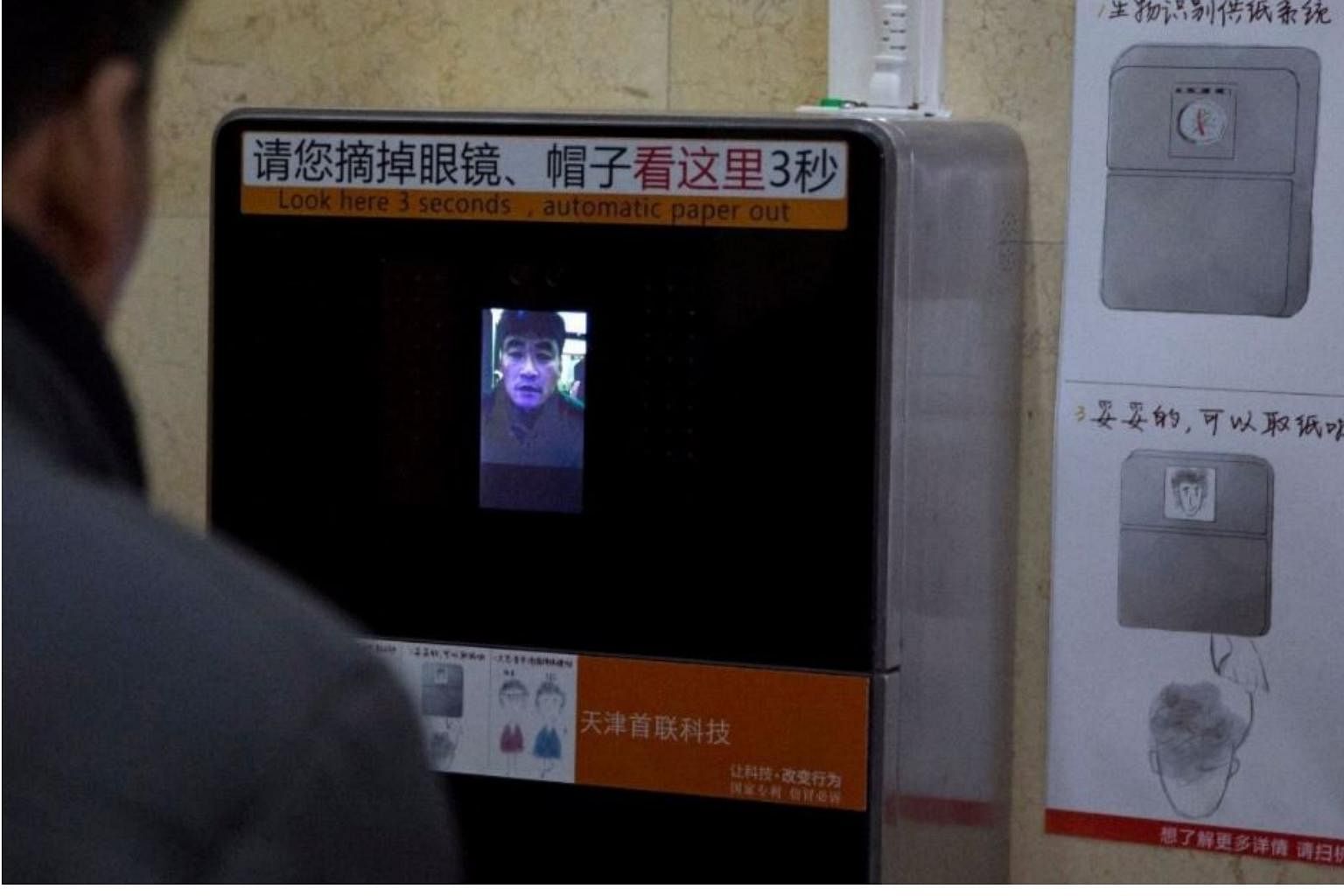Jaywalking is an offence that people have rarely been held accountable for, but traffic management authorities in several Chinese cities are trying to change that.
In Jinan, capital of eastern China's Shandong province, jaywalkers will now see their faces displayed on a big screen. Facial recognition equipment and screens have been installed at major intersections; once the equipment detects jaywalkers, it captures them on camera. Their images then immediately appear on the screen, notifying them that they have been caught.
Within 20 minutes, offenders' photos and personal information such as their ID numbers and home addresses are displayed on the screen at the crossroad.
Since early May, more than 6,000 cases of jaywalkers and non-motorised vehicles crossing road during red lights have been captured on camera in Jinan.
Here are six other ingenius ways to deter potential lawbreakers.
1. Exam authorities use high-tech security measures to catch cheaters
Metal detectors, facial and fingerprint recognition systems, cellphone-signal blockers, wireless detectors and drones were used by Chinese education authorities to catch cheating high-school students sitting for the "gaokao" or university entrance exam.
These measures were aimed at preventing students from employing elaborate methods of cheating, such as using wireless devices or tiny earpieces.

In the past, according to Reuters, students have disguised cheating devices in objects such as erasers, belts and watches.
On June 6 - the eve of "gaokao" - security officers arrested 52 people across the nation. Cheaters and their accomplices face up to seven years in jail.
2. Tokyo police employ drones with nets to catch errant drones

In April 2015, a drone carrying radioactive material was found on the roof of Japan Prime Minister Shinzo Abe's office.
It was later found to have been landed there by a man protesting the government's nuclear energy policy, but the levels of radiation from the material were too small to be harmful, according to The Independent.
Still, in December that year, Tokyo's police came up with an unusual idea of deploying a drone which is equipped with a net to capture any other suspicious unmanned aircraft - namely other drones - flying near important structures, according to Nikkei Asian Review.
3. Chinese police uses facial recognition to catch toilet paper thieves

At the Temple of Heaven Park in Beijing, restrooms have machines that scan your face before dispensing toilet paper. After one use, you'll need to wait nine minutes for the machine to give you more paper, according to BBC.
The measure, introduced in late March, is targeted at visitors who reportedly take large amounts of toilet paper home from the park.
With the facial recognition system in place, the same person cannot take more paper than the machine allows until the nine-minute period has passed.
4. Traffic offenders who flash high beams get a taste of their own medicine

Drivers who misuse their headlights by turning on the high beams will receive an "eye for eye" punishment in Shenzhen, in southern China.
Called a "high beam test" by the police, offenders will have to sit down and look into blinding headlights for 60 seconds, so that they may experience the conditions they cause others to suffer on the road.
Additionally, they will be fined 300 yuan (S$61), and will have to read out the proper regulations on when they can turn on high beams.
5. Man on mission to curb dangerous driving
In Chengdu, the capital of south-western Sichuan province, a man from New Zealand has taken it upon himself to try and stop drivers from committing traffic offences in his neighbourhood.
He has been seen attempting to stop drivers from parking illegally and driving in the wrong direction, according to Chengdu Commercial Daily. Pictures of him chasing down a driver who did the latter have been circulated online in China.
"I will caution rude drivers and most of them say sorry to me. I'll report those who refuse to listen to traffic police," he told Chengdu Commercial Daily.
While traffic police praised his actions, they also told the newspaper that he should ensure safety for himself first, and report incidents to the police if needed.
6. Convenience store ties up rat for stealing rice

Even animals will not be spared from the shaming.
Tied by its paws to a trolley with a confession note hanging from its neck - this is the punishment a rat received for stealing rice from a convenience store.
The rodent was caught on camera in Heyuan city in southern China's Guangdong province, and the pictures were then posted on Weibo, according to the Daily Mail.
The sign around its neck read: "I dare not do it again!"
The store's owner, Lai Tiancai, was aware that his staff had captured the rat. He added that "it was just a rat" and this was a "small incident", according to the Mail.

